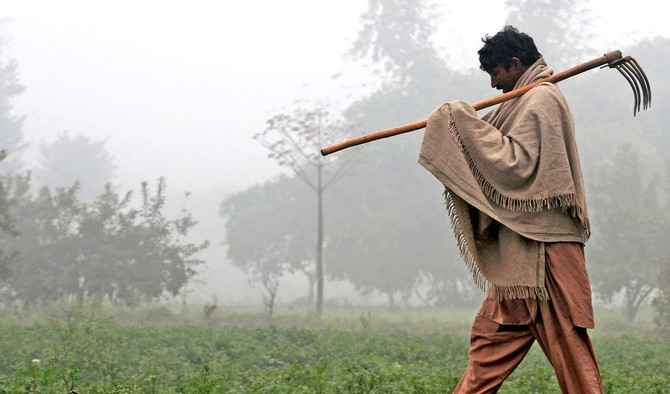By: Awais Ahmed Gopang
South Asia has always remained a centre of conundrums. It has experienced protracted wars between the states and many other topsy-turvy conditions. Currently, the region is grappling with innumerable convolutions surrounded by unusual situations and laminated under the layer of personal gains. These on-going crises have put the peace of region at stake. It has hardly come out of one problem when it’s peace succumbs to infirmity. The international stakeholders of peace have tried to retain the harmony in the region but all their attempts ended in utter fiasco. The so-called long-lasting war on terror, Kashmir conflict, and the proxies between the rivals seem to be begetting a new course of conflicts which can worsen the situation.
There are multiple factors responsible for mayhem created in the region. Firstly the Kashmir issue. This warmongering conflict between the two giants – India and Pakistan – has been a bone of contention which has put eye in the storm. The situation aggravated after the revocation of Article 35A and 370 by the cynical and ruthless thug Narendra Modi, the person responsible for the Muslim genocide in Gujrat 2002. His premeditated provocation in Jammu and Kashmir has festered the already deteriorating condition. His perfidious nature and biased attitude has exposed the pseudo claims of the world’s largest secular democracy. Unfortunately, this issue has always been overlooked by the torch bearers of world harmony and laid in the cold storage of the UN. This certainly has made the lives of 1/5th of the world population in shambles.
Moreover, there are other actors in the theatre of South Asia whose nefarious designs can destabilise the region. One of the biggest concerns for the modern world is Afghan negotiations. After reducing the already groaning Afghanistan to rubble, the US has decided to withdraw it’s troops from Afghanistan. This may be called as the defeat for the world’s superpower in the hand of militant groups. But this departure can bring irrevocable repercussions for the world in general and South Asia in particular. If the US leaves without settling the Afghan groups and persuading them for intra-Afghan dialogues it can bring a new era of militancy in the region. Reasonably, the Taliban are inclined to bring the Islamic government- Khilafah – in the region and if they availed the opportunity, they would use every mean either soft or hard to put forth their designs. Certainly, their cells like TTP present in the NWFP area of Pakistan will begin to act accordingly. Adding a bit more, the orthodox Taliban would leave no stone unturned to spread their Sunni Islam which can clearly instigate the Shia belt of Pakistan in general and Iran in particular. This would again lead to sectarian conflicts predictably a sectarian genocide in the region.
For many ages, Afghanistan has been a ring for the regional and world powers to test their muscles. Either it be between the great Britain and Russia a hundred years ago or between the US and USSR in the 1980s. Every state has tried to amass it’s geo-strategic interests by making Afghanistan a strategic depth. Even now, almost every state is interested in the Afghan theatre. For instance, Pakistan is brokering the deal between the US and Taliban to get the Kashmir issue resolved. One can say that the Afghan peace process traverses through the settlement of Kashmir. India, on it’s part, is trying to play the ball in it’s court for which it has invested $2 billion in Afghanistan. It may look normal but there is a big game being played against Pakistan. Indian investment consists building of the Shehtoot dam in Afghanistan which can restore the water of river originating from Kabul and irrigating the areas of Pakistan in NWFP. This hydro-political game can create severe water crises for Pakistan. India also wants access to Central Asia through Afghanistan by bypassing Pakistan. Iran’s role in Afghanistan holds vital importance. Being a Shia cult, Iran had called the Taliban ‘terrorist’ but supported the Afghan peace. The reason behind it is that Iran strongly supports Fatimyoons, a Shia minority wo were to sent to Syria to fight against ISIS by Iran, and wants Afghan government to absorb them in Afghan army. This act has been lambasted by the Afghan government as it creates disruption in terms of sectarianism and intrudes in the internal affairs of Afghanistan. Lastly, China wants to quench it’s insatiable thirst for oil through it’s access in Central Asia and for that Chinese OBOR initiative appears to be useful.
The unipolarity of the US has been a reason behind it’s hegemony in the geo-politics of South Asia. But, the current world politics seems to be emerging as multipolar. To follow multilateralism in this complex multipolar world seems difficult to accomplish. In order to curtail the US hegemony, the subsequent powers – China and Russia – are making their alliance with other regional powers which are fed up of American influence. One of the most important of those alliances is the troika between China, Russia and Pakistan. Pakistan’s relations with Russia usually hit the rock bottom but they have gathered under the same umbrella to sap the US influence. According to report Russian Foreign Minister in his recent visit offered a blind cheque to Pakistan and signed multiple MoUs on energy, counter terrorism cooperation and economic bail out. So let the Panda, Beer and Markhor hunt the Eagle. Iran may also be considered to be an important actor in this act since it has been sanctioned by the US and has remained at the lowest ab owing to JCPOA commonly known as Iran Nuclear Deal.
Conclusively, one may argue that the South Asian politics is turning a new leaf. It’s problems are skewing the political arena for actors. If the issues remained unresolved, it would imperil not only the victimized country but the whole region.
The writer is a student based in Sukkur, Pakistan. He can be reached at [email protected]








